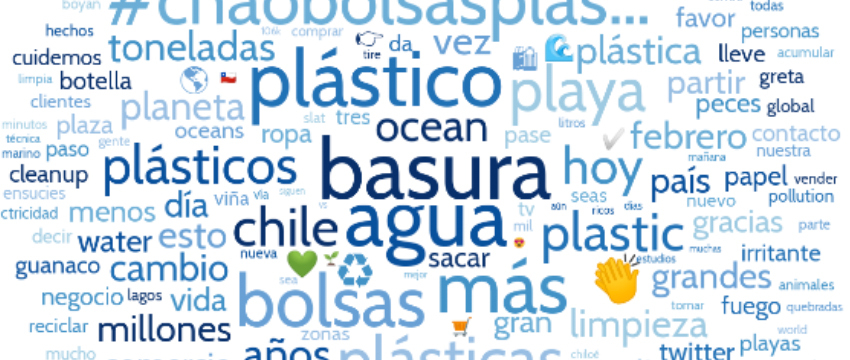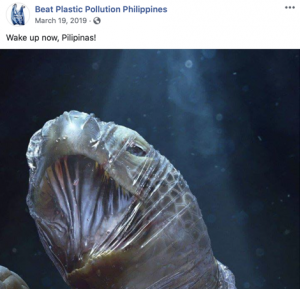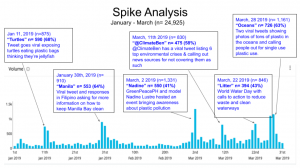SEE Suite collaborates with College of Engineering on plastic pollution research

SEE Suite collaborates with College of Engineering on plastic pollution research
Even as the world faces new challenges today, issues like plastic pollution remain a growing threat. Interns in the Social media Engagement & Evaluation Suite at the University of Georgia Grady College of Journalism and Mass Communication collaborated with UGA’s College of Engineering and found that social media platforms allow researchers to understand environmental problems in new ways.
The SEE Suite provided social media analytics support for a holistic assessment of plastic usage in a community, known as the Circularity Assessment Protocol, or CAP. The CAP methodology, developed in the Jambeck Research Group led by Jenna Jambeck of the College of Engineering and associate director of the New Materials Institute, provides a diagnostic tool to understand plastic pollution from a systemic perspective that assesses seven spokes: input, consumers, product design, use, collection, end of cycle and leakage.
“This unique collaboration reflects one key mission of the SEE Suite – to provide students real-life experience of social media analytics, by providing services to local institutes, while addressing issues of great societal importance,” says Itai Himelboim, the Thomas C. Dowden Professor of Media Analytics and director of the SEE Suite.
To capture consumer perspectives, the Jambeck Research Group tasked SEE Suite interns with providing insights into discussions of plastic pollution in marine environments for field projects in India, Chile and the Philippines.
Jimmy Jensen, a SEE Suite intern, called working on the project an “insightful experience” and added that “plastic pollution is a universal issue, but I think it’s easy to forget about how it applies to the countries outside of the United States.”

Data was collected from Twitter, Facebook and Instagram in two major ways. First, the interns explored expected conversations that UGA scientists and local partners anticipated finding based on their expertise and previous research. A list of relevant social media accounts, topics and hashtags were provided to collect data.
Second, the interns probed additional marine debris themes and key influencers. They used a carefully constructed keyword search to capture all conversation on topics related to marine debris and pollution for each country. With this approach, the team made unanticipated discoveries that provided a more well-rounded overview of how users in India, Chile and the Philippines are discussing issues through social channels.
“Our deep dive into Chile’s social media network helped me learn more about their people than I could ever hope,” said Jay Tanguay, another SEE Suite intern, of his work examining online communities.
The project started in fall 2019 and continued successfully after the suspension of classes due to COVID-19. Working as partners, there was an emphasis on virtual collaboration during the latter half of the semester. The interns used Zoom to present initial project reports for the marine debris leadership team, and then revised those reports based on questions and feedback from Jambeck and her collaborators.
“It was exciting to work for a real client and present our findings directly to them,” Gabby Melfi, another SEE Suite intern, said. “This work was different than typical class projects because we really had to understand our data in order to answer any questions from the client.”
“Social media creates opportunity for such novel interactions between environmental advocates, policymakers, major brands, and consumers,” said Kathryn Youngblood, a research engineer in Jambeck Research Group. “With plastic pollution increasingly in the spotlight in recent years, this expanding dialogue offers a rich source of data on community attitudes towards, and perceptions of, plastic pollution. We felt it was important to capture these conversations as part of our holistic view of plastic pollution, and working with SEE Suite allowed us to tap into existing expertise at UGA to conduct this analysis.”

This project will also create a greater understanding of how social media data analysis can support the fight against environmental waste. Additional research focused on spike analyses over time and specific overviews of major cities in the targeted countries.
Jambeck reflected, “We knew we wanted to do social media sentiment analysis for our CAP work, and so we were so excited to find SEE Suite right here at UGA, with the exact expertise we needed. And then to be able to engage and involve interdisciplinary students in our work on real-world projects is even better. I look forward to continued collaboration with SEE Suite, Itai and his students.”